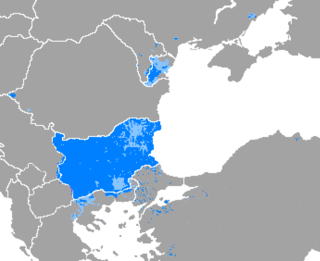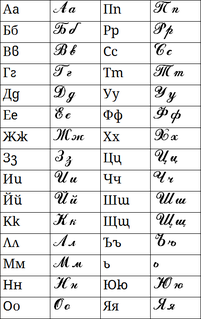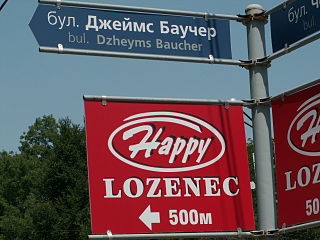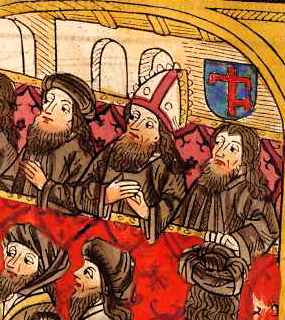 W
WBulgarian is a South Slavic language spoken in Southeastern Europe, primarily in Bulgaria. It is the language of Bulgarians.
 W
WThe Bulgarian alphabet is used to write the Bulgarian language.
 W
WBulgarian dialects are the regional varieties of the Bulgarian language, a South Slavic language. Bulgarian dialectology dates to the 1830s and the pioneering work of Neofit Rilski, Bolgarska gramatika. Other notable researchers in this field include Marin Drinov, Konstantin Josef Jireček, Lyubomir Miletich, Aleksandar Teodorov-Balan, Stoyko Stoykov.
 W
WThe Bulgarian name system has considerable similarities with most other European name systems, and with those of other Slavic peoples such as the Russian name system, though it has certain unique features.
 W
WMiscellany is a collection of sermons and other religious texts, by Puncho Kuzdin, a priest and pupil of Paisius of Hilendar who compiled, scribed and illustrated it by 1796, in a village near Mokreš Lomu. Today it is in the SS. Cyril and Methodius National Library in Sofia. The 809 pages are 20.5 х 15 centimeters.
 W
WThe spelling reforms of modern Bulgarian orthography were used to make simpler the writing of standard Bulgarian language.
 W
WThe existence and distinctiveness of the Macedonian language is disputed in Bulgaria and the name of the language was disputed in Greece. With signing the Prespa Agreement, Greece accepted the name "Macedonian language" in reference to the official language of North Macedonia.
 W
WRomanization of Bulgarian is the practice of transliteration of text in Bulgarian from its conventional Cyrillic orthography into the Latin alphabet. Romanization can be used for various purposes, such as rendering of proper names and place names in foreign-language contexts, or for informal writing of Bulgarian in environments where Cyrillic is not easily available. Official use of romanization by Bulgarian authorities is found, for instance, in identity documents and in road signage. Several different standards of transliteration exist, one of which was chosen and made mandatory for common use by the Bulgarian authorities in a law of 2009.
 W
WThe Slavic dialects of Greece are the Eastern South Slavic dialects of Macedonian and Bulgarian spoken by minority groups in the regions of Macedonia and Thrace in northern Greece. Usually, dialects in Thrace are classified as Bulgarian, while the dialects in Macedonia are classified as Macedonian, with the exception of some eastern dialects which can also be classified as Bulgarian. Until the official codification of Macedonian in 1945 many linguists considered all these to be Bulgarian dialects. However, some linguists opposed this view and considered Macedonian dialects as comprising an independent language distinct from both Bulgarian and Serbian.
 W
WGregory Tsamblak or Grigorij Camblak (Bulgarian: Григорий Цамблак; was a Bulgarian writer and cleric who was the metropolitan of Kiev between 1413 and 1420. A Bulgarian noble, Tsamblak lived and worked Bulgaria, but also in Medieval Serbia and Kyivan Rus and indebted these two countries to himself through his literary works, which represent a heritage of their national literatures, particularly the style of Old Serbian Vita made popular in the monasteries of the 12th century.